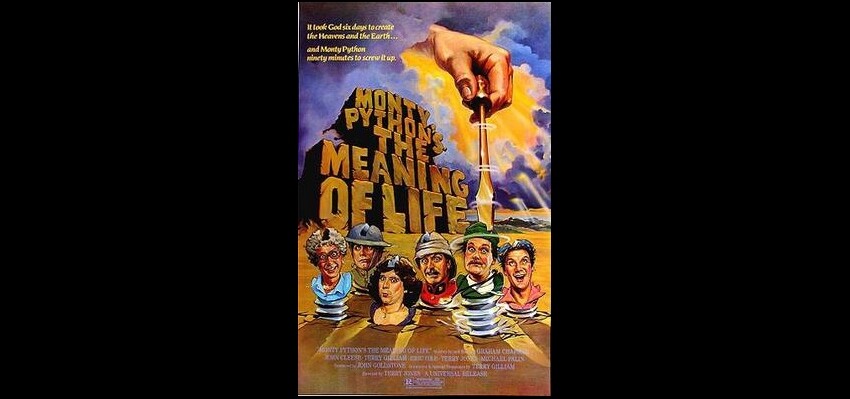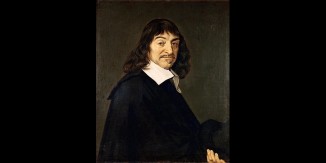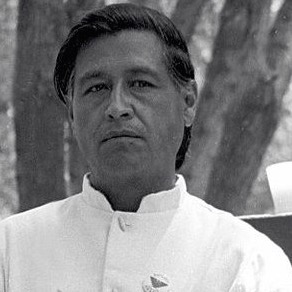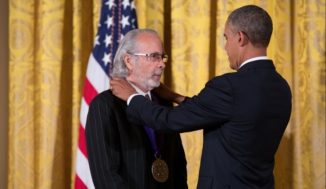42 years ago today, Monty Python’s The Meaning of Life was released in the United States to modest box office success and enormous cult acclaim. Less of a continuous film like the comedy troupe’s previous Life of Brain, and Monty Python and the Holy Grail and more of a collection of sketches, The Meaning of Life is divided into various chapters of a human life, but begins when six fish in a restaurant fish tank watch one of their friends get taken for dinner and start wondering “what’s it all for?” READ more about this hilarious film from the comedy masters… (1983)

The Meaning of Life contains some sketches that would go on to be famous in their own right, including “Mr. Creosote,” the giant French restaurant patron who explodes after eating a “wafer-thin mint.” There’s also the section entitled “Live Organ Transplants,” where paramedics manage to convince a live woman to donate her liver after Eric Idle emerges from a refrigerator and sings “The Galaxy Song” about how insignificant an individual planet, much less human life, really is.
A short film was put into The Meaning of Life called the “Crimson Permanent Assurance” wherein a small London accounting firm turns their 20-storey building into a pirate ship and begins to raid merchant banks in another financial center.
At the conclusion of the film, a man who was previously executed is led by the Grim Reaper to heaven which is a Vegas-style lounge where every day is Christmas. At one point, a waiter delivers the comedy troupe’s keynote philosophy tidbit before admitting she is a terrible racist.
“It’s nothing very special, really. Try and be nice to people, avoid eating fat, read a good book every now and then, get some walking in, and try and live together in peace and harmony with people of all creeds and nations”.
MORE Good News on this Date:
- Johann Sebastian Bach, the composer who revolutionized religious and secular music and inspired Mozart, was born (1685)
- Composer Joseph Haydn (Father of the Symphony and String Quartet, and mentor to Beethoven. was born in Austria (1732)
- The Eiffel Tower, designed by architect Gustave Eiffel, officially opened to commemorate the French Revolution (1889)
- Britain & France agreed to support Poland if it were invaded by Germany (1939)
- Jimi Hendrix set his guitar on fire for the first time, ascending to a new level with his stage persona, two months before Are You Experienced was released (1967)
- Albania held first multi-party election in 50 years (1991)
- Thich Nhat Hanh, the renowned Zen master and author led a “Sit in Peace” meditation on the open grounds of London’s famed Trafalgar Square (2012)
34 years ago today, the Warsaw Pact officially disbanded, ending the military build-up and stand-off between European communism and European democracy. As many of the communist leaders had already been overthrown by their populations, the dissolution of the pact was more of a formality than a revolution, and even before it was disbanded member states were already cooperating with the West in the invasion to liberate Kuwait during the First Gulf War.

De jure, the eight-member countries of the Warsaw Pact pledged the mutual defense of any member who would be attacked, but de facto, the Pact was a direct reflection of the USSR’s authoritarianism and undisputed domination over the Eastern Bloc. To wit, the largest military action the Warsaw Pact ever engaged in collectively was the invasion of a Pact member: Czechoslovakia, in 1968.
Hungary tried to depart the pact ten years before this and was also invaded and brutally ‘corrected’ by the Soviet Union. In 1968, just 30 days after the invasion of Czechoslovakia, Albania exited the Pact for obvious reasons.
So one can see that the true nature of the Warsaw Pact was exactly like all constructions of communist, socialist, and central planning ideologies—a lie and mirage meant to institute totalitarian control. (1991)
629 years ago today, René Descartes was born. The French philosopher contributed vitally to the development of the Western philosophical canon, even if he would later be proven somewhat wrong. His deduction, Latinized as “cogito, ergo sum,” in his book Discourse on the Method has become widely recognized as the cornerstone of thought that launched the Age of Rationalism. It means “I think, therefore I am.”

Descartes referred to his philosophic method as “methodological skepticism” or Cartesian doubt: he rejected any ideas that can be doubted and then re-establishes them in order to acquire a firm foundation for genuine knowledge. Descartes built his ideas from scratch which he does in The Meditations on First Philosophy. He relates this to architecture: the topsoil is taken away to create a new building or structure. Descartes calls his doubt ‘the soil,’ and the new knowledge ‘the buildings.’
Using Cartesian doubt, cogito, ergo sum establishes that if one doubts they really exist, that act of doubting is, in and of itself, evidence of the fact that they do. Cartesian theory at large tackled the concept of mind-body dualism: how are the two separate and how are they conjoined? His conclusion is that there are two kinds of matter—thinking matter and non-thinking matter.
More recently, philosophers and neurologists like Jonathan Haidt, Daniel Kahneman, and Iain McGhilchrist have shown that the establishment of thinking as the fundamental character of conscious matter errs, in that most human cognition is not a rational deduction but an emotional, intuitive, response based firstly on the perceptions of possible interactions with matter. Fascinating stuff. (1596)
23 years ago today, tennis ace Andre Agassi claimed his 700th career match victory in nothing less than the final of the Miami Open, also called the Key Biscayne, or the Miami Masters, the largest tournament outside of the Grand Slam titles. 2002 began under stormy clouds and disappointment for Agassi, as injury forced him to skip the Australian Open, where he was a two-time defending champion. He recovered to beat Roger Federer in a 4-set final to claim number 700, as well as his 5th Miami Open title.

Only 18 Open-Era men’s singles athletes have passed 700 wins, and the victory was Agassi’s 52nd tournament win and his 13th master series victory. The Miami Masters were a rich vein for Agassi in his career, and he holds records for the most Miami Masters finals (8) most match wins (61), and longest consecutive winning streak across the series (19). WATCH highlights from the match … (2002)
Happy Birthday to the Jedi Master Ewan McGregor, who turns 54 years old today. Born in Scotland, the actor rocketed to international fame in 1999, playing a young Obi-Wan Kenobi in the first Star Wars prequel, Episode I, The Phantom Menace. He played the Jedi again in the succeeding Star Wars sequels Attack of the Clones and Revenge of the Sith.

His performance in the romantic drama Moulin Rouge! earned McGregor his first Golden Globe nomination for Best Actor—and 11 years later (2012) he earned a second nomination for Salmon Fishing in Yemen.
In 2020, he was featured on the Smithsonian Channel as the narrator of Stormborn, a docu-series that followed animals battling the elements along the coast of McGregor’s homeland of Scotland, as well as Iceland and Norway.
He eventually starred as Obi-Wan in a fictional biopic sort of program called Obi-Wan Kenobi. McGregor, who is also an executive producer on the project, co-starred once again with Hayden Christensen who returns in the role of Anakin Skywalker, the young Darth Vader.

Available exclusively on Disney+, the story begins 10 years after the dramatic events of their last meeting when Kenobi watched his best friend and Jedi apprentice, Anakin, turn to the dark side. WATCH a teaser trailer… (1971)
And, on this day in 1927, César Chávez, the civil rights hero and labor leader of one of the most abused and exploited groups in America, was born.
He co-founded the National Farm Workers Association in 1962 to help migrant workers—and like Gandhi and Martin Luther King Jr., was a spiritual figure and crusader for nonviolent social change, using peaceful tactics such as fasts, boycotts, strikes and pilgrimages. When he died in 1993, at age 66, more than 50,000 marched in his funeral under a hot California sun. A migrant worker himself, education was always a priority for Chávez because, after eighth grade, he had to leave school to work in the fields to support his family. Chávez had great intellectual curiosity, was self-taught, and read widely throughout his life on many topics. His birthday today is a holiday in eight states.
Happy 90th Birthday to Herb Alpert, the musician and modern artist who is best known for the music of his Tijuana Brass band. He had five No.1 albums, sold 72 million records worldwide, and won nine Grammy Awards—including one for a recent album in 2013.

He is the “A” in A&M Records, which he co-founded, and he has given away more than $54 million to arts programs and environmental campaigns. (1935)

And, on this day in 1949, the RCA Victor company introduced the 45-rpm record, an advancement that had taken almost a decade to develop. The 7-inch single was designed to offer better fidelity and longer playing time than the 78-rpm record currently in use. Most importantly, using the new record players, listeners could stack the disks, and hear up to ten records in a row with “speedy, silent, hardly noticeable changes,” as the advertisements boasted. The music system was designed to compete with the Long Playing records (LPs) introduced by Columbia a year earlier. The ‘45s’ became a staple in jukeboxes and homes for decades to come.

And on this day in 1948, the US Congress passed the Marshall Plan to rebuild war-torn Europe after World War II. Recognizing the need for economic stability on the continent, former Army Chief of Staff George Marshall responded to the high unemployment and food shortages with an initiative that provided $13 billion in aid to 18 European countries and gave each country a role in creating its own plans for recovery. When the funding ended four years later, the economy of every participant state had surpassed pre-war levels by 25-35%. Five years after its launch, Marshall received a Nobel Peace Prize for his good-deed foreign policy. WATCH a video…
SHARE the Milestones, Memories, and Music…



















